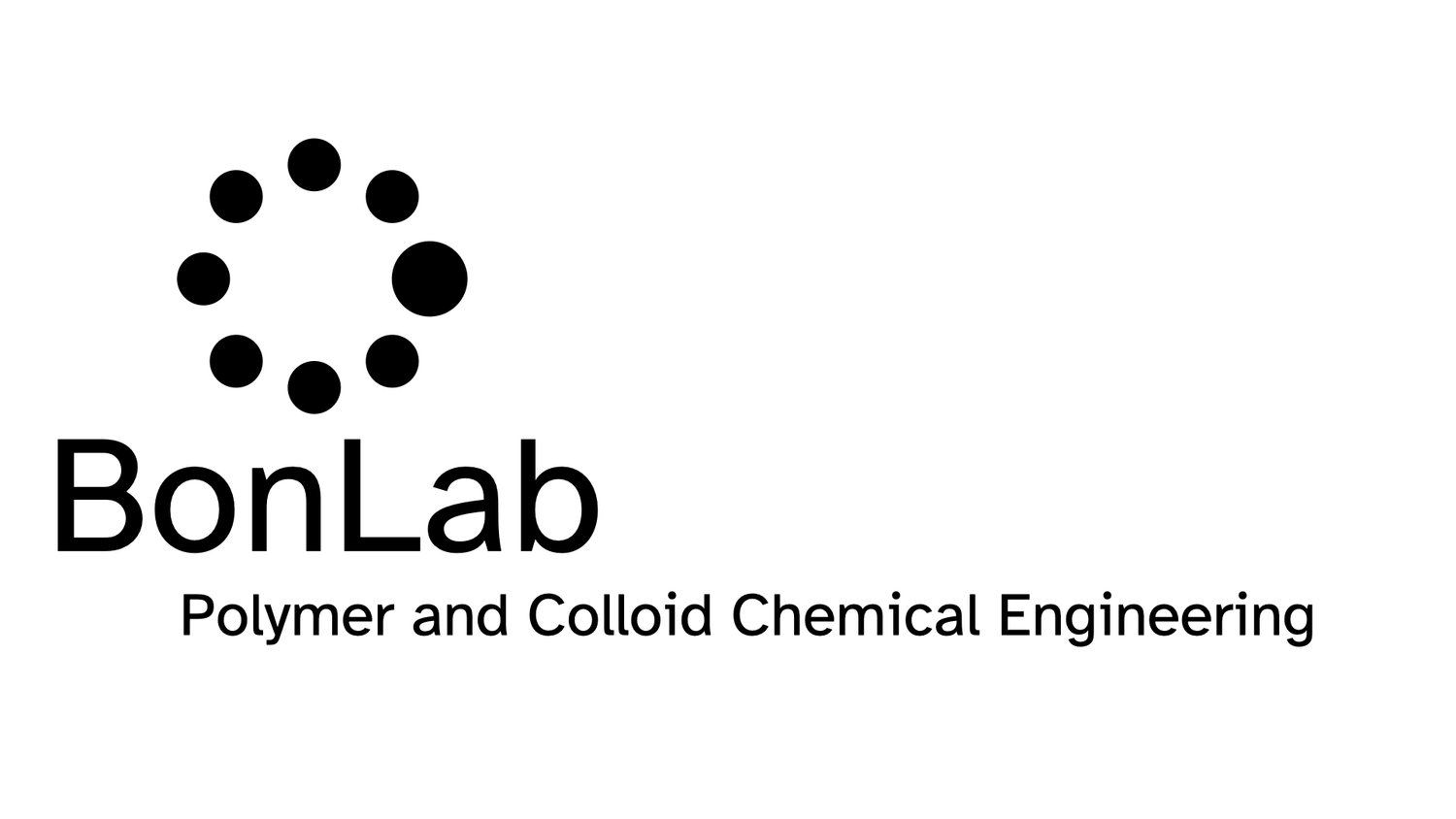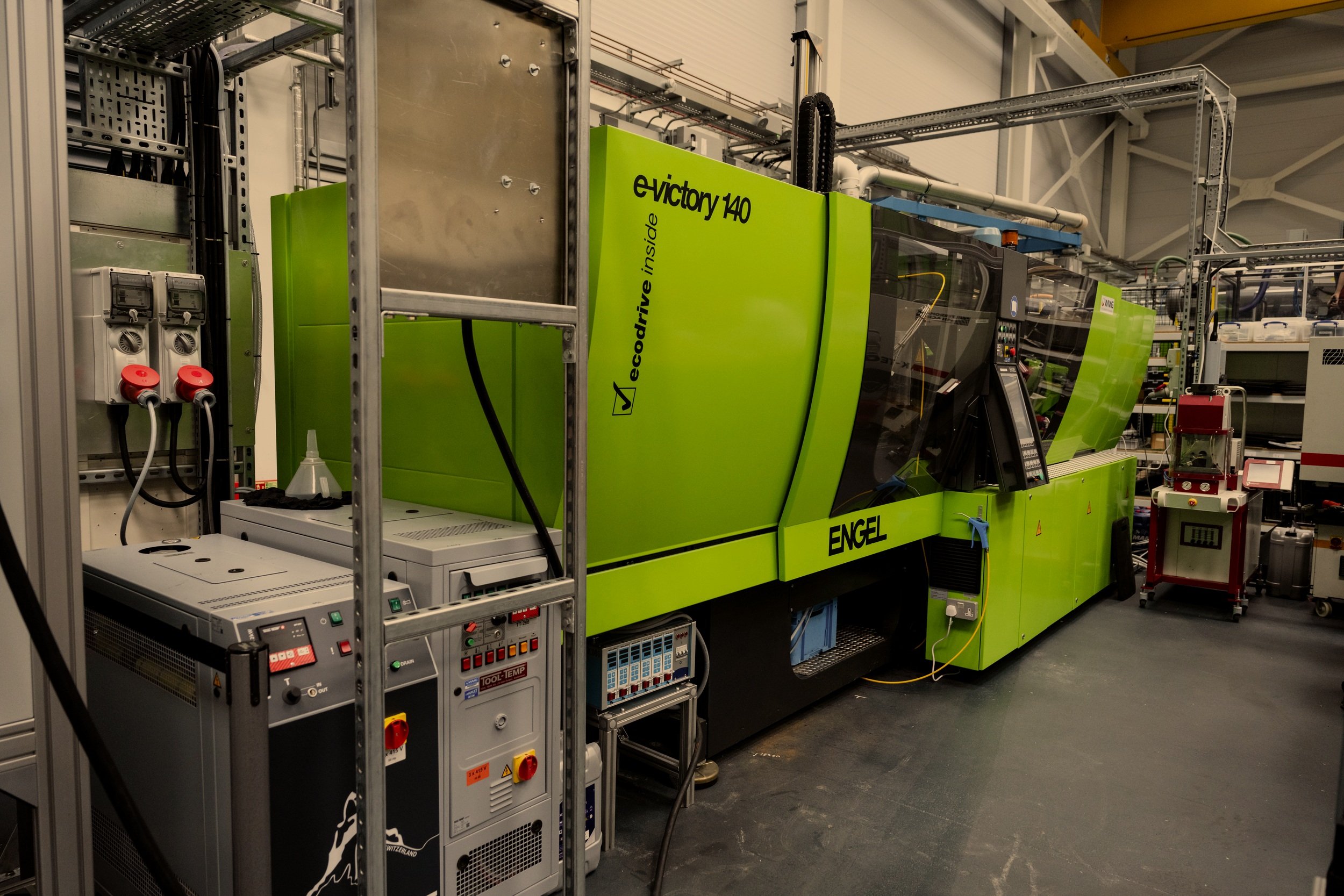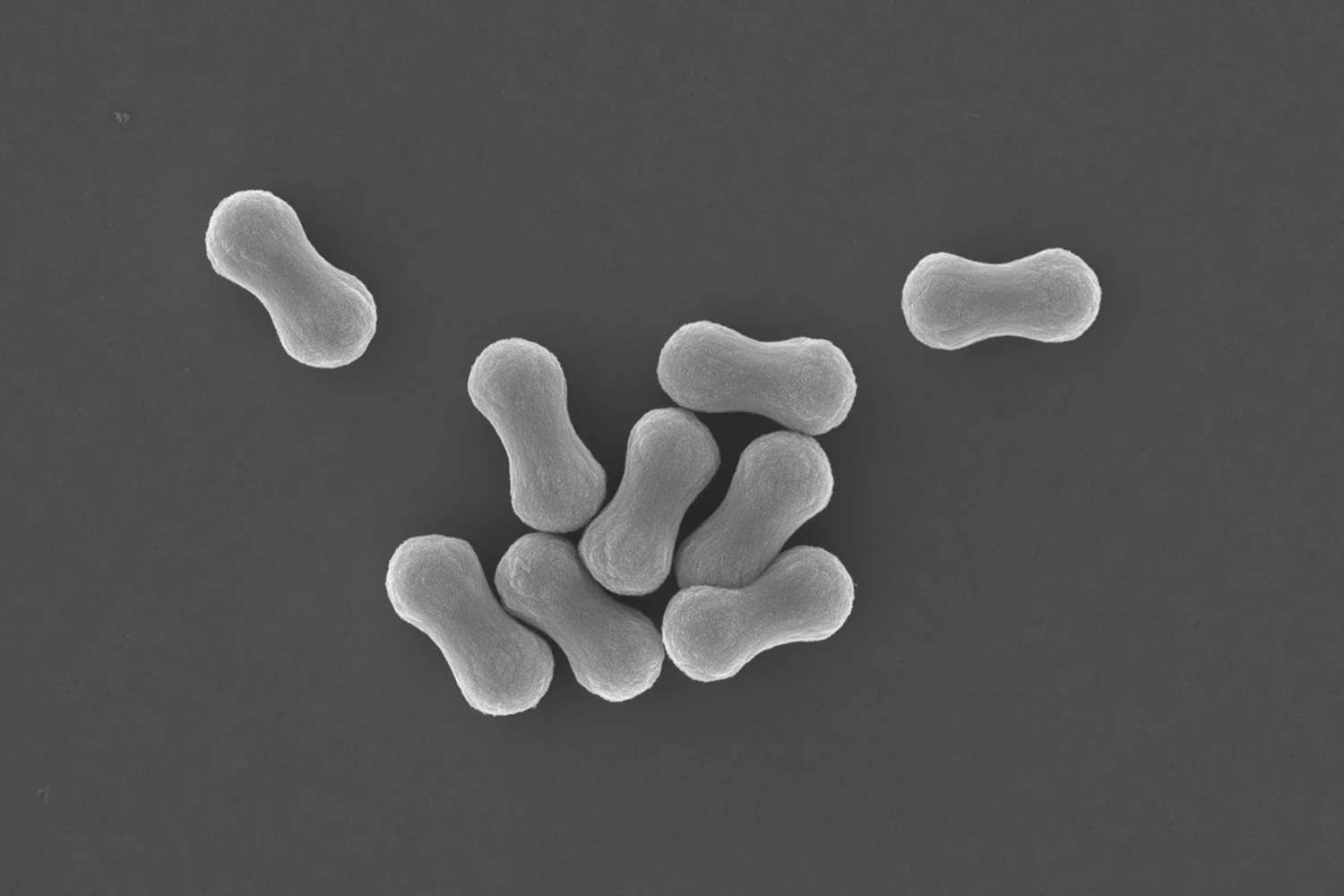
BONLAB BLOG
Thoughts
&
Scientific Fiction
Awards for Alex Fletcher and Mars Poxon
Alex Fletcher, a 4th-year PhD researcher working on sustainable polyester dispersions and a team member of BonLab, won best research talk at the annual Department of Chemistry symposium at the University of Warwick.
Both Alex Fletcher and Mars Poxon from BonLab were awarded a Surfex Bursary by OCCA, the Oil & Colour Chemists’ Association.
Alex Fletcher, a 4th-year PhD researcher working on sustainable polyester dispersions and a team member of BonLab, won best research talk at the annual Department of Chemistry symposium at the University of Warwick. At this event, all final-year PhD students present their accomplishments.
Alex Fletcher and Mars Poxon arriving at Montpellier Airport in France.
Both Alex Fletcher and Mars Poxon from BonLab were awarded a Surfex Bursary by OCCA, the Oil & Colour Chemists’ Association. Mars is a 2nd year PhD researcher and works on the synthesis and environmental fate characterization of. degradable polymer dispersions, a project sponsored by the Natural Environment Research Council. Both will be presenting their work at the 2025 conference of the International Polymer Colloids Group, in Sète, France, from 20 June to 27 June.
Prof. dr. ir. Stefan Bon said: “It is fantastic to see the hard work of Alex and Mars recognised. As a mentor and coach I am extremely proud of what they have achieved.”
Warwick drives green growth with £13.6M EPSRC hub in plastics
From developing greener materials and processes to growing more sustainable supply chains, a new £13.6 million research hub, funded by the Engineering and Physical Sciences Research Council (EPSRC), will help researchers at the University of Warwick tackle some of the UK’s biggest manufacturing challenges.
The new Manufacturing Research Hub in Sustainable Engineering Plastics (SEP) will be led by Professor of Polymer Processes, Ton Peijs, at WMG, and has Professor of Polymer and Colloid Chemical Engineering, Stefan Bon, at the Department of Chemistry as one of the co-investigators.
From developing greener materials and processes to growing more sustainable supply chains, a new £13.6 million research hub, funded by the Engineering and Physical Sciences Research Council (EPSRC), will help researchers at the University of Warwick tackle some of the UK’s biggest manufacturing challenges.
The new Manufacturing Research Hub in Sustainable Engineering Plastics (SEP) will be led by Professor of Polymer Processes, Ton Peijs, at WMG, and has Professor of Polymer and Colloid Chemical Engineering, Stefan Bon, at the Department of Chemistry as one of the co-investigators.
Researchers from Warwick will work, over the next seven years, alongside the University of Manchester and UCL to improve the way durable plastics – commonly used in cars, buildings, and electronics – are created, reused, and recycled. Researchers aim to reduce waste, support greener manufacturing practices, and advance the circular economy, with support from over 60 industry partners, including JLR, Polestar, Siemens, BEKO, Bellway, and Biffa, to turn research into real-world solutions.
By focusing on practical needs, the Hub will help move the UK toward a circular economy—where products are reused instead of thrown away. The work will support businesses in reducing waste and minimizing their environmental impact, while maintaining competitiveness. It will also strengthen local supply chains and help shape future policies that promote innovation and sustainability in the UK manufacturing sector.
Professor Ton Peijs, Project Lead, of the EPSRC Manufacturing Research Hub in Sustainable Engineering Plastics, said: “We’re incredibly proud to lead this vital initiative. Until now, most sustainability efforts in plastics have focused on single-use items and packaging. Yet engineering plastics - essential to modern life - present equally complex sustainability challenges that have, until now, largely been overlooked.
This Hub unites researchers, industry leaders, and policymakers to fundamentally rethink how engineering plastic parts are designed, reused, repaired and recycled. We’re focused on real-world impact: using greener materials, smarter manufacturing and recycling systems, and more sustainable supply chains.
This grant underscores the urgent need for innovation in this space, and we’re excited to drive meaningful, lasting change.”
Professor Stefan Bon, co-investigator, from the Department of Chemistry says: “We at Warwick, the University of Manchester, and UCL worked tremendously hard to get this initiative over the line. It is good to see that the UK government recognises the value of its polymer science and engineering capabilities. The next 7-8 years will be fantastic!”
The Hub is one of four, backed by a total of £44 million through the EPSRC the new Manufacturing Research Hubs for a Sustainable Future will bring together world-class researchers with over 180 industry and civic partners to drive practical, sustainable innovation across the UK.
Each hub will focus on a different critical area of manufacturing, including creating net-zero supply chains and resilient production systems, as well as transforming waste and reducing our reliance on fossil fuels.
Professor Charlotte Deane, Executive Chair of EPSRC, said: “These hubs will play a vital role in reshaping manufacturing to help the UK achieve green growth. By combining deep research expertise with real-world partnerships, they will develop the technologies, tools, and systems we need for clean, competitive, and resilient industries.”
For more info see UKRI: https://www.ukri.org/news/new-research-hubs-to-cut-carbon-and-reshape-uk-manufacturing/
Stefan Bon receives Warwick Award for Teaching Excellence (WATE)
The Warwick Awards for Teaching Excellence (WATE) are handed out annually by the University of Warwick (UK) and aim to recognise those who have made a difference to the student learning experience through their work and their teaching practice. This year there were over 400 nominations by staff and students.
After an extraordinary academic year (2020-2021), WATE will be celebrating stories of ’everyday excellence’ in challenging times. Award winners are recognised for their exceptional commitment, impact and innovation to higher eduction by supporting students and colleagues, planting the seeds for future approaches to teaching and learning as we emerge from the global COVID pandemic.
One of the recipients this year of an individual Warwick Award for Teaching Excellence (WATE) is prof. dr. ir. Stefan Bon, a chemical engineer with expertise in polymer and colloid science, who works in the Department of Chemistry within the Faculty of Science, Engineering, and Medicine.
Prof. Bon is passionate about and dedicated to education, has an excellent relationship with the students, and has a track record to innovate in and to deliver great learning environments and experiences for students at Warwick. Throughout the years he has delivered original and exciting modules in polymer and colloid science, thermodynamics, kinetics, mathematics, key skills, and chemistry practical lab classes.
His creativity, drive, and passion to teach science and his engagement with the student community have led to progressive educational ideas being implemented at Warwick University, amongst which Chemistry Café, a highly successful student led social informal learning space, a concept now rolled out to multiple departments.
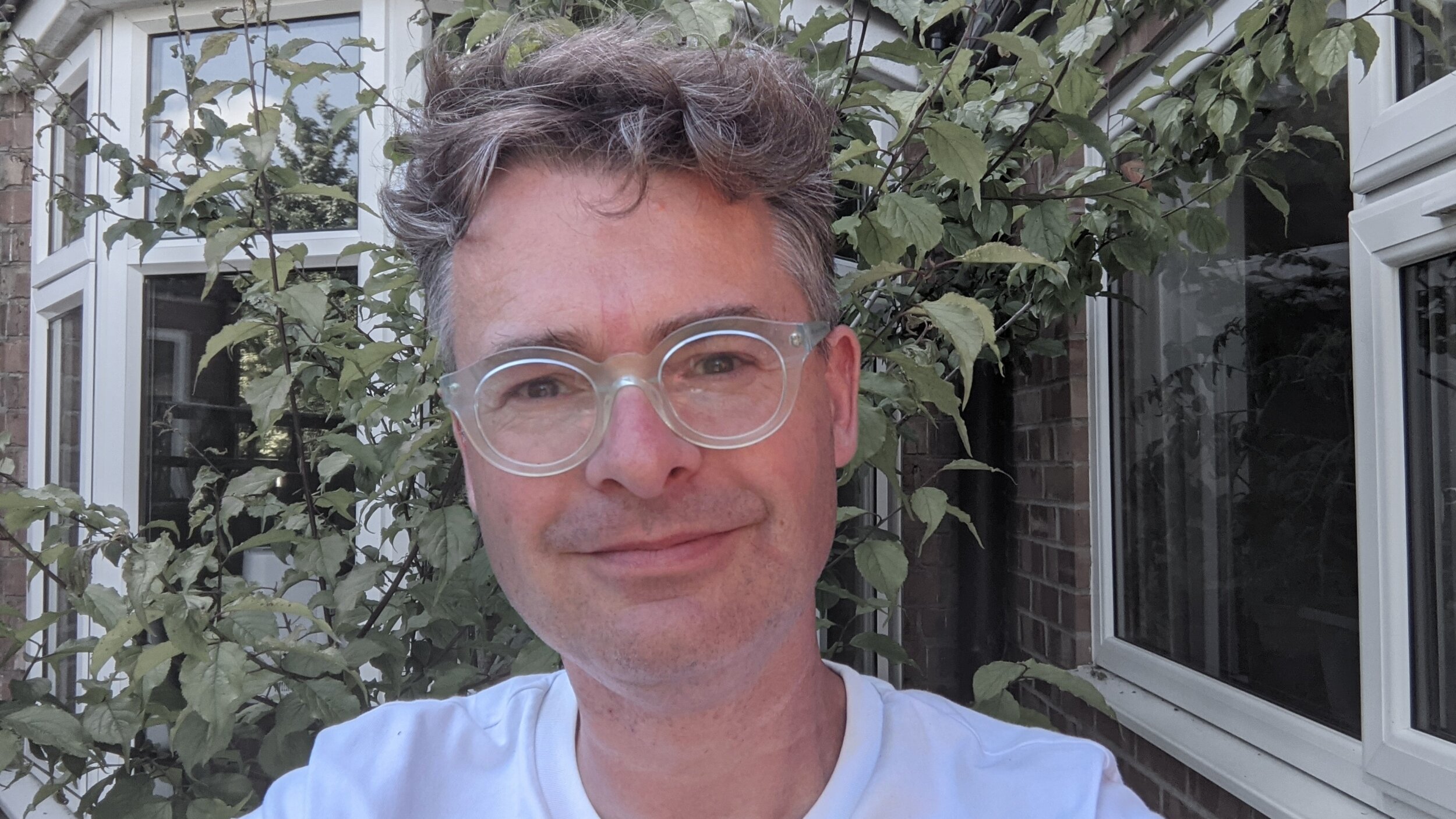
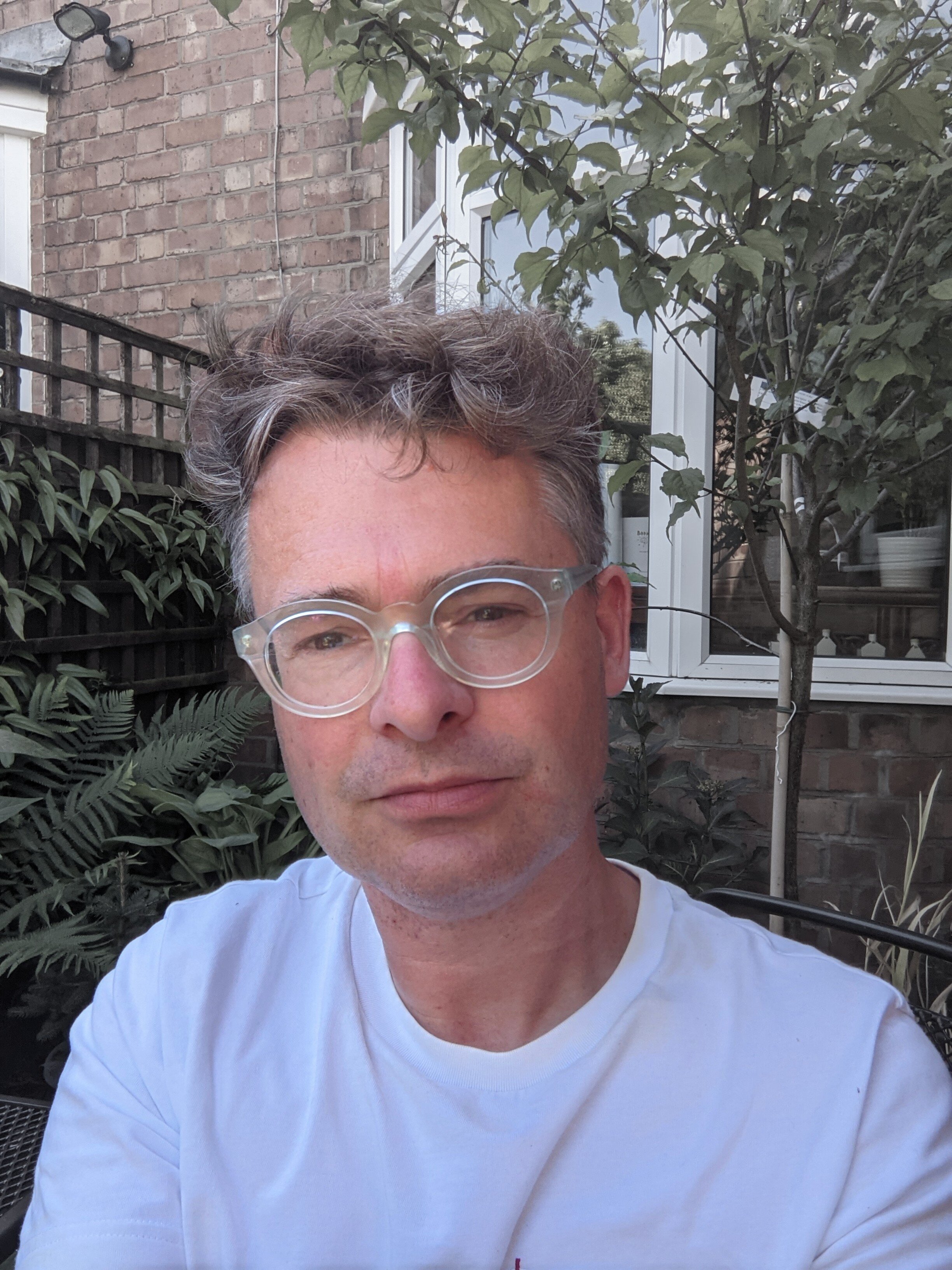
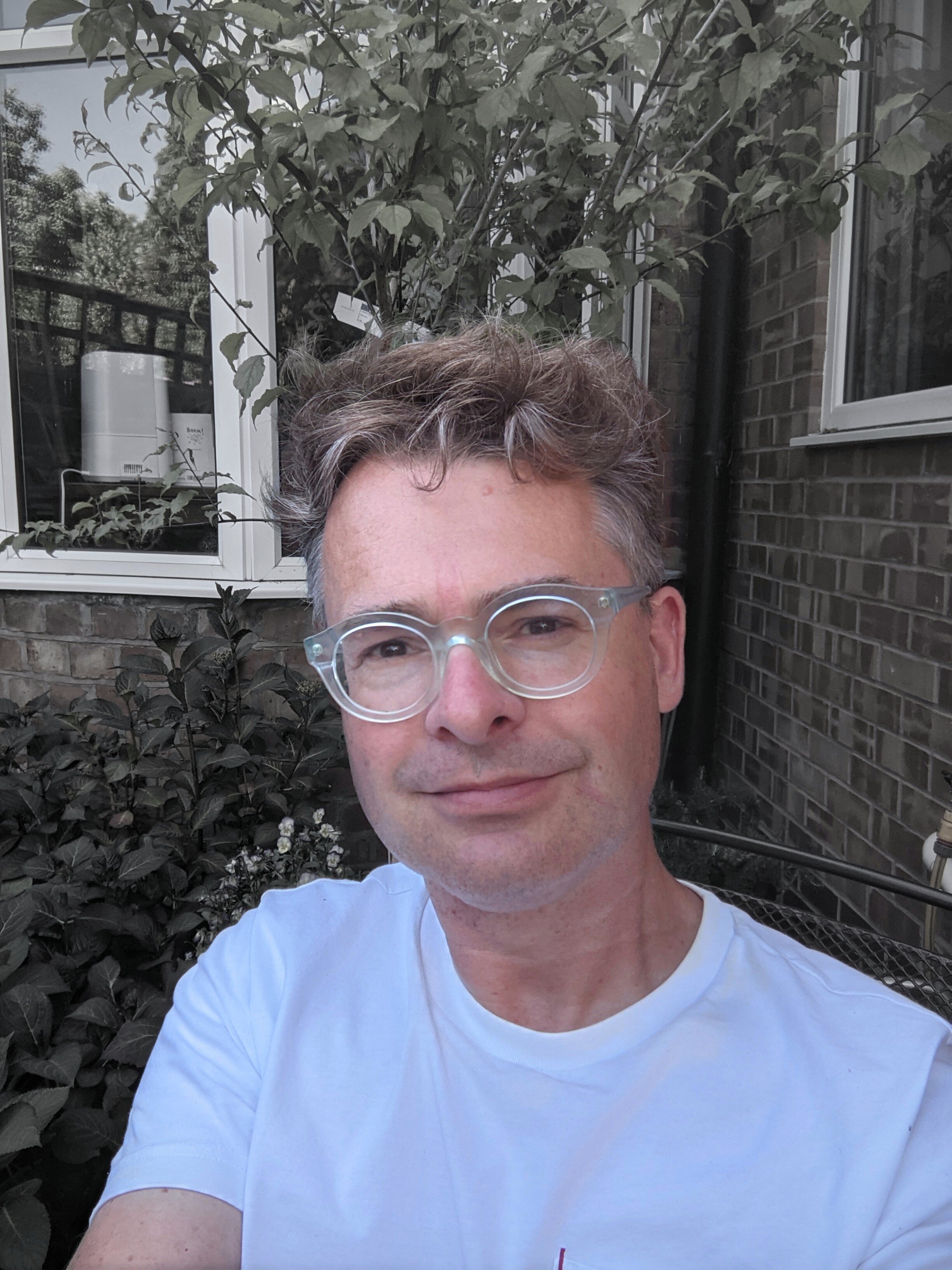
Prof. dr. ir. Stefan Bon says: “ This award came as a total surprise. I am absolutely delighted to have been nominated by our students and I am thrilled that the WATE committee decided to make me one of this year’s WATE recipients. I truly feel touched by this, it means a lot.
I would like to say a massive ‘thank you’ to all the students for their enthusiasm and dedication to their studies, standing up for themselves and each other, and forming together the Warwick community, especially in these unusual and difficult COVID times. I am proud of what they have achieved, especially in this academic year.
Teaching science is a key reason why I became an academic. The opportunity to mesmerise people with scientific concepts and see them use and apply these with enthusiasm to discover new science and develop innovative strategies for a more sustainable society, makes me very happy.
The combined learnings from teaching over one academic year remotely/blended, together with the STEM-grand challenge plans Warwick University has for the sciences, is a not to be missed opportunity to provide a step-change in higher education delivery.”
Prof. Bon is contributing actively to this with colleagues from across the University and is leading a task group under the Education and Students Experience Work Group, to look at new and exciting learning opportunities and curriculum design and how these can be implemented for Warwick science.
